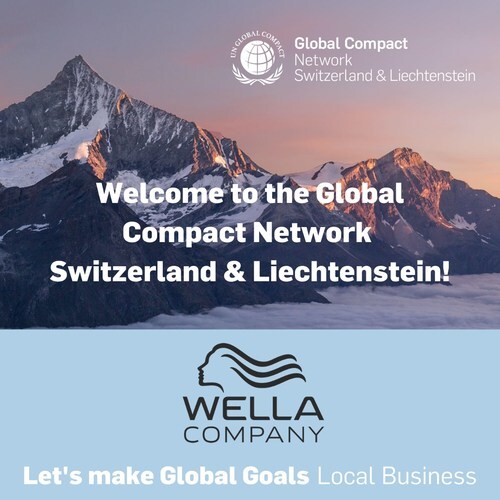
FHH wins “Athar Award” for best practices in sustainability, CSR in Egypt
Fine Hygienic Holding (FHH), one of the world’s leading wellness groups and manufactures of hygienic ...

Wella Company announced joining of the United Nations Global Compact (UNGC), the world’s largest initiative for sustainability in business, as well as its plans to cut. 28% of its CO2 emissions by 2030
The company has committed to the UNGC corporate responsibility initiative and its Sustainable Development Goals (SDGs) in the areas of human rights, labor, the environment, and anti-corruption, which are in line with our company values.
Wella Company is an innovative global leader in the $100 billion beauty industry with a portfolio of iconic professional and retail hair, nail, and cutting-edge beauty tech brands, including Wella Professionals, O·P·I, ghd, Briogeo, Nioxin, Sebastian Professional and Clairol.
“Wella Company aims to be a purpose-driven company, embedding ESG (Environment, Social, Governance) at our core, becoming a force for good for our global community and all our stakeholders. Since our first day as a standalone company just 18 months ago, we began working toward this goal. Participating in the UNGC was an important step to formally commit to advancing their Sustainable Development Goals,” said Annie Young-Scrivner, Chief Executive Officer of Wella Company.
“As we mark World Environment Day, we declare our ambition to reduce our impact on the environment where it matters most. Our stakeholders have told us our greatest impact points are in our operations and in our product offerings. Therefore, reducing our negative impact related to climate, water, packaging, and waste is crucial. We believe our efforts will be not only actionable but attainable in the coming years,” said Hilary Crnkovich, Chief Sustainability and Communications Officer of Wella
Wella Company’s environmental and social impact strategy focuses on three pillars: People, Planet and Products
The strategy focuses on “reducing its carbon footprint.” It has taken the first steps in its commitment to reducing its environmental impact; comprehensively mapping the company’s carbon footprint. From this the company has set science-based targets for reducing our carbon emissions and designed clear plans for meeting those goals. Abiding by the Paris Agreements and following the SBTi Standard of Baseline Maintenance, the company is committed to a carbon emission reduction of 28% by 2030, across scopes 1, 2 and 3.
Wella company aims to accomplish that by reducing its scope 1 and 2 emissions (from its direct operations) by 46% and maintaining its scope 3 emissions (across its value chain) at the 2019 level (our pre-COVID baseline).
The strategy also focuses on “reducing water use”. The company is committed to reducing its water consumption per unit produced in its owned facilities by 35% by 2030, reaching 25% by 2025. In addition, it is conducting Water Risk Assessments in the basins where it operates and will seek and implement innovative circular water solutions.
It also works on “eliminating waste”. Its initial focus is on reducing its waste production and impact from our operations. Wella company is committed to reducing the amount of waste it creates per unit produced in our owned facilities by 35% by 2030, reaching 25% by 2025.
Further, it will reduce the impact by achieving Zero Waste to Landfill at all its owned sites where possible.
The strategy also seeks “reducing packaging use of virgin materials”. The company aims to reduce our use of virgin materials (plastics, aluminum, glass, and cardboard) in its packaging by 50% by 2030, reaching 30% by 2025. These reductions are compared against its 2019 baseline of total packaging by material weight.
The company also seeks “increasing packaging design for recyclability”. It aims for 100% of its packaging to be recyclable, reusable, or refillable by 2030, reaching 80% by 2025.
اترك تعليقا